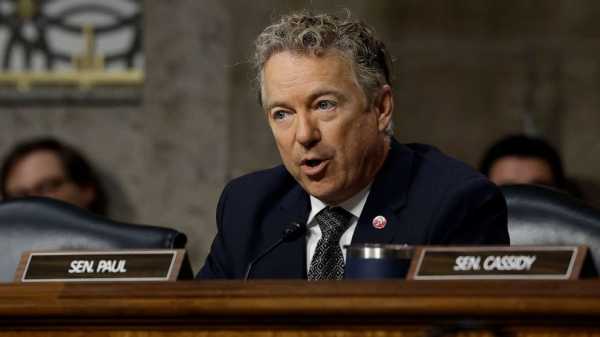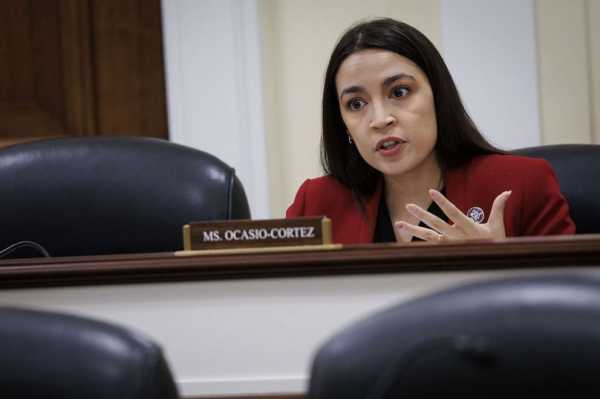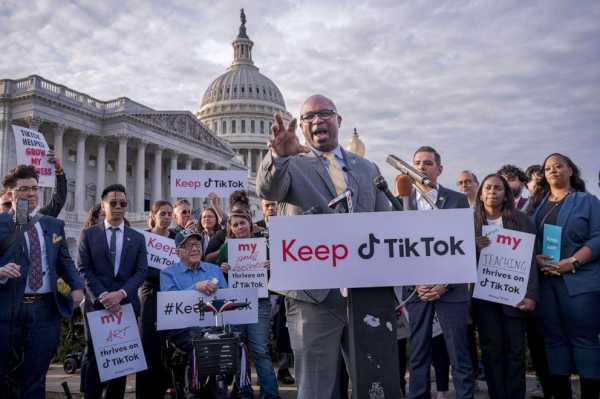An unusual cross-section of lawmakers has emerged against a TikTok ban, with usual ideological foes employing similar language to denounce what they say would be censorship.
Sen. Rand Paul, R-Ky., is the latest to voice opposition to a total prohibition of the popular social media app — joining the ranks of progressive "Squad" members such as Reps. Alexandria Ocasio-Cortez, Jamaal Bowman and others.
Paul effectively shut down an attempt Wednesday from his Republican colleague Sen. Josh Hawley, R-Mo., to get unanimous consent to ban the Chinese-owned app.
"If you don't like TikTok or Facebook or YouTube, don't use them," Paul said in a 12-minute floor speech. "But don't think that any interpretation of the Constitution gives you the right to ban them."
MORE: 'Uncharted territory': How would a TikTok ban in the US work?
Paul argued a ban would amount to violations of the First Amendment, adding, "The Constitution actually prohibits bills of attainder. You’re not allowed to have a specific bill against a person or a company."
"So this fails on two egregious points," he said, cautioning people should "beware of those who peddle fear."

Sen. Rand Paul speaks during a hearing with former Starbucks CEO Howard Schultz in the Dirksen Senate Office Building on Capitol Hill, March 29, 2023.Anna Moneymaker/Getty Images
Hawley argued Paul was advocating for a "right to espionage."
"I have never before heard on this floor a defense of the right to spy. I didn't realize that the First Amendment contained a right to espionage," the Missouri Republican shot back.
TikTok has faced growing bipartisan scrutiny from government officials, with the animosity coming to a head last week in a testy hearing between CEO Shou Zi Chew and House members.
Lawmakers and Biden administration officials have questioned who has access to data stored on the app, with some describing the platform as a threat to national security due to its parent company's ties to the Chinese Communist Party.
"Every accusation of data gathering that's been attributed to TikTok could also be attributed to domestic Big Tech companies," Paul said.
Ocasio-Cortez, Bowman and a handful of other progressives have also argued that a ban on TikTok raises free speech issues and wouldn't solve the broader problem of data gathering on various Big Tech platforms. Bowman similarly invoked First Amendment concerns when voicing his opposition to a ban.
"The First Amendment gives us the right to speak freely and to communicate freely and TikTok as a platform has created a community and a space for free speech for 150 million Americans and counting," he said last week.
Ocasio-Cortez offered her defense of the company in her first-ever TikTok video last week. She told viewers a ban "doesn't really address the core of the issue, which is the fact that major social media companies are allowed to collect troves of deeply personal data about you that you don't know about without really any significant regulation whatsoever."

Rep. Alexandria Ocasio-Cortez speaks during a House Oversight and Accountability Subcommittee hearing in Washington, D.C., March 28, 2023.Bloomberg via Getty Images
The New York Democrat also noted the United States has never banned a social media app and that Congress hasn't received a classified briefing — as is normally the case — regarding national security concerns.
MORE: No evidence of TikTok national security threat but reason for concern, experts say

Rep. Jamaal Bowman leads a rally to defend TikTok at the Capitol, March 22, 2023.J. Scott Applewhite/AP
There are several attempts to ban the app working their way through Congress, including the DATA Act from House Foreign Affairs Committee Chairman Michael McCaul, R-Texas, and the RESTRICT Act from Senate Intelligence Committee Chairman Mark Warner, D-Va.
House Speaker Kevin McCarthy, R-Calif., said he expects the House will move forward with legislation to address TikTok but didn't detail when such action would take place.
Sourse: abcnews.go.com






